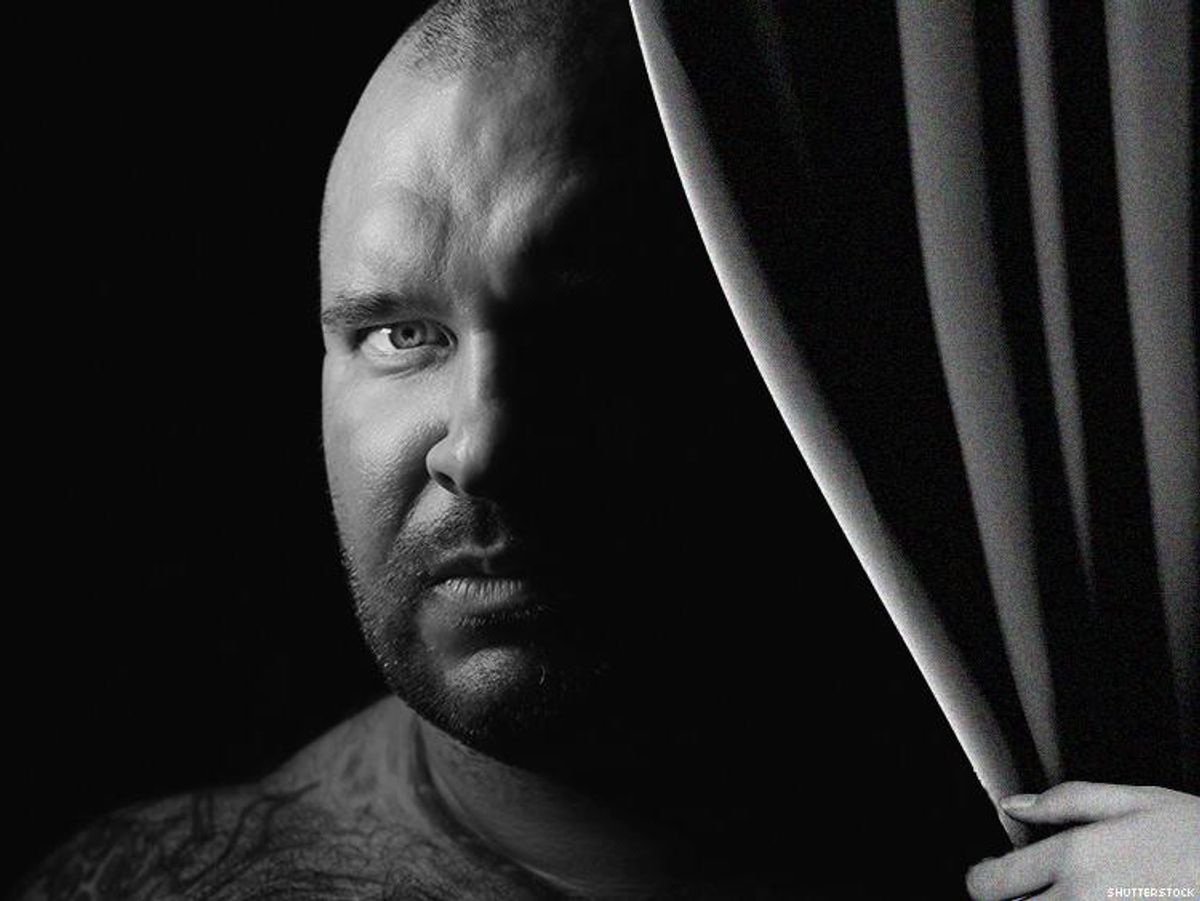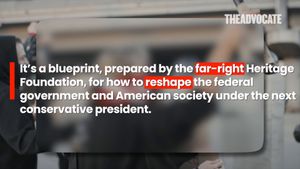Earlier this month I submitted an article to the regional LGBT newspaper I write for, The Gayly, about Oklahoma's proposed anti-LGBT bills, which numbered a staggering 27.
Being Oklahoma, there was legitimate concern on the community's part that any number of these bills would pass, if not all of them. I like being an Oklahoman, but I will fully admit, we aren't the most progressive state in the Union. Fortunately, shortly after I submitted the article, almost all the bills failed in the legislature. Sadly, the readers of our paper in Missouri weren't so lucky, and a law allowing religious discrimination against LGBT people advanced, much to many of my friends' horror. However, what I wrote is more important than ever, not just for my state, but LGBT people all over the country, especially those in North Carolina.
To homophobic and transphobic officials: Go ahead, pass those laws. I dare you.
I'm not saying this flippantly. I know that there are some truly terrified people in North Carolina, and any other state that passes these laws that single our community out, and my heart truly does go out to them. When I had to travel to my home state of Mississippi last year, I was quite nervous stopping in a few of the small towns along the interstate to gas up and use the bathroom. In a few places I got some odd stares and a few fingers pointed, so I was in a bit of a rush to get on my way. Personally, I don't frighten easily and I don't feel scared or threatened when many others would. I can't explain why and any number of bar-stool psychoanalytic reasons would probably be pretty correct, though I think it's mostly because I'm probably too stubborn and lost in my own thoughts to worry. So please, don't think I'm being cavalier with others' safety.
The reason I dare legislators to pass insidious legislation is because having those laws pass is playing right into our hands. A few years back in Oklahoma, our state passed a bill that banned Sharia Law. Why? Because scary Muslims were hiding behind every bush, ready to cut all our Christian heads off because we had a bacon cheeseburger, while our women walked around showing their naked ankles -- at least that's what the panicked people who passed the law thought. Before the bill could even be enforced, a Muslim rights group sued in federal court, gaining an injunction blocking the law from going into effect until it could be decided to be legal or not. Of course it was summarily struck down and the Islamophobic law died in its infancy, just like it should have, and just like these anti-LGBT laws in North Carolina and other states will.
Many people have never heard of the Supreme Court case Romer v. Evans. We all know Brown v. Board of Education, the landmark law that struck down "separate but equal" provisions in the public school system, but Romer has a special bit of extra relevance. It's about exactly what is happening in North Carolina.
Back in the early 1990s, a few local Colorado towns and cities passed laws that prevented discrimination against LGBT people. This didn't sit well will many and so the state passed a constitutional amendment that prevented local governments from passing these antidiscrimination ordinances -- just like in North Carolina, where the anti-LGBT legislation was a reaction to the city of Charlotte passing its own equality ordinance.
The Colorado law, known as Amendment 2, was quickly challenged for conflicting with the Equal Protection Clause of the 14th Amendment to the U.S. Constitution, which has been a powerful tool for equality in the legal arsenal. When it finally reached the Supreme Court, the law was struck down in a decisive 6-3 decision, because not only was Amendment 2 a violation of that promise of equal protection, but it went out of its way to single out LGBT people for discrimination. To quote Justice Anthony Kennedy, "the amendment seems inexplicable by anything but animus toward the class that it affects; it lacks a rational relationship to legitimate state interests."
In other words, it was a retaliatory law that had no legitimacy to the government's job of running the state. It was a hate law.
Then, let's throw in other relevant cases such as Powell v. Schriver, which affirms an individual's right to privacy regarding their own medical status, including being transgender, as well as Sterling v. Borough of Minersville, which determined that you cannot be coerced into outing yourself, as it can put your safety at risk. Sterling is particularly relevant, because of the tragic circumstances that decided it. A pair of closeted teen boys were told to out themselves, or else the police officer who caught them drinking underage would do so -- right after he lectured them about homosexuality being a sin. One of the boys was so terrified that he committed suicide, and his mother sued and won. This one is particularly important to the trans men and women who would be forcefully outed by using by using the bathroom of their gender assigned at birth.
The North Carolina law, known as House Bill 2, and many others like it, also violate Title VII of the Civil Rights Act of 1964, which prevents workplace discrimination based on sex. The Equal Employment Opportunity Commission decided years ago that being transgender is covered under that clause, and it has been reinforced in a court of law.
Additionally, the North Carolina law could apply to publicly funded schools and colleges, forcing them to run afoul of Title IX protections under the Education Amendments of 1972. You might be familiar with Title IX as the law that prevents sex-based discrimination in resources and opportunities to any school that receives federal funds; this includes everything from housing and scholarships to sports. The U.S. Department of Education in 2014 determined that transgender students are covered by this, as well. This means that trans women must have access to women's-only opportunities, and the same goes for trans men. The North Carolina law won't mesh well with all those federal student loans for colleges, and Department of Education funds for public schools, will it?
That seems to be the hope of the American Civil Liberties Union and Equality North Carolina, which on Monday filed a lawsuit against North Carolina's HB 2 seeking an injunction.
That's why I'm telling these anti-LGBT legislators to bring these laws on. We celebrate having gay celebrities and athletes come out as positive role models and examples of our community. Whenever we see positive stories about us in the news, or as characters on a TV show or movie, or even as political leaders, we point out how these things help build equality. Of course they do. Exposure to different people and being able to see them as human makes it harder to hate them.
A great case in point is the Republican governor of South Dakota vetoing that state's bathroom bill after meeting with trans people. However, the full force of our equality and rights has always come from the courts. For decades now, the federal courts have been on our side. Sodomy laws were struck down by the Supreme Court's decision in Lawrence v. Texas in 2003. Same-sex marriage was declared a nationwide right through the court more than a decade later. Now it's time for the court to do for LGBT people what it has done for racial minorities and women. Take one look at the singling out, the blatant discrimination, the clear bigotry behind the laws and say, "No. This is not right."
These laws being struck down in the courts will be the victory that goes beyond marriage, and dismantles the idea that we can be treated "separate but equal." Yes, we will suffer and be discriminated against by laws that are inherently immoral and unconstitutional until they are defeated. We will suffer setbacks and pain, but remember what John Milton said: "Long is the way and hard, that out of Hell leads up to light."
AMANDA KERRI is a comedian and writer based in Oklahoma City.


















































































